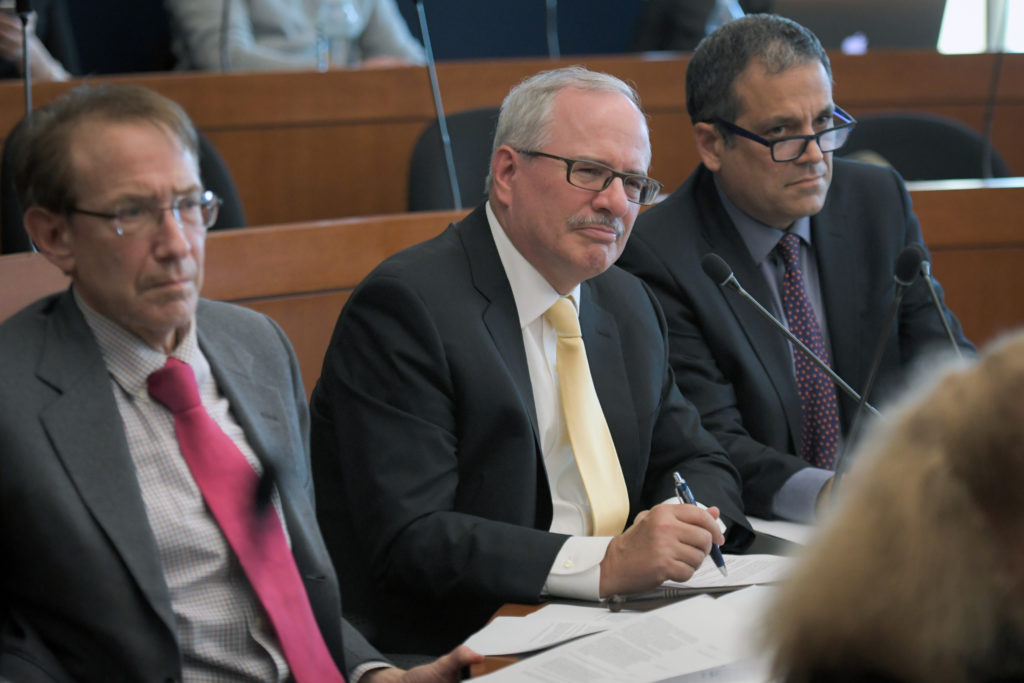Update: Feb. 16, 2019 at 8:08 p.m.
After a test-drive of the Disney Institute’s services, GW will partner with the company for another two years in an attempt to mend its employee culture.
Officials announced last week that the Cultural Leadership Team – a group of faculty and administrators working to improve staff morale and interactions – decided to once again work with the company that oversaw an institutional culture survey last semester. The institute will guide and improve GW’s approach to bettering its employee culture by helping define employee expectations and overall institutional goals, officials said.
“The University found the insight and feedback from the Disney Institute to be helpful during the culture assessment and determined that it would be beneficial to have the guidance and support of the Disney Institute as it enters the next phase of what is an ongoing and evolving initiative to transform the culture of GW,” Executive Vice President and Chief Financial Officer Mark Diaz said in an email.
Officials first partnered with the Disney Institute, a professional development company under the umbrella of the Disney company, last fall to issue the culture survey to faculty and staff and conduct focus-group interviews with some respondents. More than half of employees answered the survey and the Disney Institute helped identify four areas of improvement: communication, leadership accountability, employee appreciation and service orientation.
Diaz said it is “critically important” that the University invests in a service to address those issues. He declined to say what services the Disney Institute will provide over the next two years and how much the services will cost, saying the details of the contract are private.
GW’s initial investment in the company cost $300,000, which garnered backlash from some faculty and students who said the money could have been better allocated elsewhere. University President Thomas LeBlanc said in an interview with The Hatchet last semester that the price is “not inexpensive” but is “a measure of how important this issue is to us.”
In an email sent to staff last week announcing the partnership, Diaz said the Culture Leadership Team will create a “common purpose” for employees to define GW’s goals and lay out expectations for various roles at the University. The leadership team will also launch working groups this semester led by faculty and staff “ambassadors” to address the issues highlighted in the culture survey, the email states.
“This requires a strong commitment, involving faculty and staff at all levels from across the University,” the email read. “We are ready to take action on the issues raised in the assessment and start to shape the University’s culture.”
Diaz declined to say how faculty and staff ambassadors will be selected and what their roles will be. He declined to say why officials will create a common purpose statement and how officials will define expected behaviors of employees.
A representative from the Disney Institute declined to comment.
Sylvia Marotta-Walters, the chairwoman of the Faculty Senate and a member of the leadership team, said she has followed the work of the Disney Institute for years, reading books released by the center. She said Disney Institue employees are experts in their field, and while the work of the leadership team is in its “early stages,” she looks forward to the assessment process.
“The team is a really good group of people,” she said.
But Ivy Ken, the president of the Faculty Association, a faculty advocacy group, said the new partnership is a “slap in the face” to faculty who had voiced concerns about vague questions in the initial assessment and the high cost of the service. She added that she and other leaders of the association met with LeBlanc and Provost Forrest Maltzman two weeks ago to bring up those concerns.
Ken said Disney’s assessment services are “costly,” and the administration should consider reversing this decision.
“After all, our working conditions are students’ learning conditions, and a faculty that is disregarded like trash will start to stink up the classrooms before too long,” she said in an email.
This post was updated to reflect the following correction:
The Hatchet incorrectly reported a quote in this story. The quote has been corrected. We regret this error.





